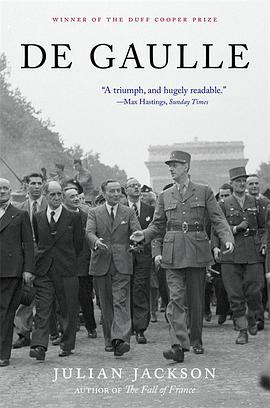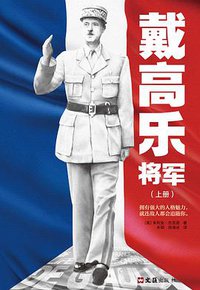De Gaulle
豆瓣
Julian Jackson
简介
“In crafting the finest one-volume life of de Gaulle in English, Julian Jackson has come closer than anyone before him to demystifying this conservative at war with the status quo, for whom national interests were inseparable from personal honor.”—Richard Norton Smith, Wall Street Journal
“Masterly…makes for awesome reading…an outstanding biography.”—Max Hastings, Sunday Times
In the early summer of 1940, when France was overrun by German troops, one junior general who had fought in the trenches in Verdun refused to accept defeat. He fled to London, where he took to the radio to address his compatriots back home. “Whatever happens,” he said, “the flame of French resistance must not be extinguished and will not be extinguished.” At that moment, Charles de Gaulle entered history.
For the rest of the war, de Gaulle insisted he and his Free French movement were the true embodiment of France. Through sheer force of personality he inspired French men and women to risk their lives to resist the Nazi occupation. Sometimes aloof but confident in his leadership, he quarreled violently with Churchill and Roosevelt. Yet they knew they would need his help to rebuild a shattered Europe. Thanks to de Gaulle, France was recognized as one of the victorious Allies when Germany was finally defeated. Then, as President of the Fifth Republic, he brought France to the brink of a civil war over his controversial decision to pull out of Algeria. He challenged American hegemony, took France out of NATO, and twice vetoed British entry into the European Community in his pursuit of what he called “a certain idea of France.”
Julian Jackson’s magnificent biography, the first major reconsideration in over twenty years, captures this titanic figure as never before. Drawing on the extensive resources of the recently opened de Gaulle archives, Jackson reveals the conservative roots of de Gaulle’s intellectual formation, sheds new light on his relationship with Churchill, and shows how he confronted riots at home and violent independence movements from the Middle East to Vietnam. No previous biography has so vividly depicted this towering figure whose legacy remains deeply contested.
contents
List of Illustrations
Acknowledgements
Maps
Paris
The Western Front, 1914–16
Prisoner of War, 1916–18
De Gaulle’s War, September 1939–June 1940
Wartime London
West Africa and the Middle East
The Occupation and Liberation of France, June 1940–May 1945
Introduction
I. De Gaulle before ‘De Gaulle’, 1890–1940
1. Beginnings, 1890–1908
2. ‘A Regret That will Never Leave Me’, 1908–1918
3. Rebuilding a Career, 1919–1932
4. Making a Mark, 1932–1939
5. The Battle of France, September 1939–June 1940
II. Exile, 1940–1944
6. Rebellion, 1940
7. Survival, 1941
8. Inventing Gaullism
9. On the World Stage, September 1941–June 1942
10. Fighting France, July–October 1942
11. Power Struggles, November 1942–November 1943
12. Building a State in Exile, July 1943–May 1944
13. Liberation, June–August 1944
III. In and Out of Power, 1944–1958
14. In Power, August 1944–May 1945
15. From Liberator to Saviour, May 1945–December 1946
16. The New Messiah, 1947–1955
17. In the ‘Desert’, 1955–1958
18. The 18 Brumaire of Charles de Gaulle, February–June 1958
19. Président du Conseil, June–December 1958
IV. Republican Monarch, 1959–1965
20. ‘This Affair Which Absorbs and Paralyses Us’, 1959–1962
21. Turning Point, 1962
22. The Pursuit of Grandeur, 1959–1963
23. Going Global, 1963–1964
24. Modernizing Monarch, 1959–1964
25. Half-Time, 1965
V. Towards the End, 1966–1970
26. Upsetting the Applecart, 1966–1967
27. Diminishing Returns
28. Revolution, 1968
29. The End, June 1968–November 1970
30. Myth, Legacy and Achievement
Bibliographical Note
Biographies
Notes
Index
